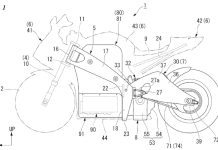Nissan is transforming its plant in Canton, Mississippi, to prepare for the electric age. The company has committed $500 million to convert the facility into its North American electric vehicle (EV) production hub. The plant, producing gasoline-powered trucks, crossovers, and vans since 2003, will now be reconfigured to build EVs.

Here are the key features of the Nissan Canton Mississippi plant:
- $500 million investment: Nissan is investing $500 million to transform the plant into its North American hub for electric vehicle production.
- New battery-electric vehicles: The plant will produce a range of new cars for the Nissan and Infiniti brands.
- Two electric sedans: The first EVs to be made in Canton will be two electric sedans from 2026.
- Two electric crossovers: Two electric crossovers will be made in Canton in 2027 and 2028.
- EV production trials: EV production trials are scheduled to start in late 2025 or early 2026.
- EV production equipment: EV production equipment will arrive as early as next year, giving technicians time to train.
- Retrain 2,000 production employees: Nissan expects to retrain the 2,000 production employees on Canton’s Line 2 affected by electrification.
- Current capacity: The Canton plant operates at a little more than half its annual capacity of 410,000.

By the middle of this decade, production will begin on the first of several battery-electric vehicles for the Nissan and Infiniti brands. The goal is for the Canton plant to become North America’s electrification hub for the next five to six years, focusing on bringing in new platforms, technologies, and connectivity features.
Experience
The company aims to apply the lessons learned from its experience with the Leaf Hatchback, launched over a decade ago, to develop competitive EVs regarding equipment and design.

While Nissan will not initially convert the Canton plant into an EV-only facility, the plan is to build EVs alongside the gas-powered Altima sedan on one of the factory’s two assembly lines. According to a supplier production schedule, the first EVs manufactured in Canton will be two electric sedans from 2026, followed by two electric crossovers in 2027 and 2028.

However, there seems to be a delay in production, as the original announcement stated that EV production in Canton would start in 2025. The reason for the delay is currently unknown.
Electric Models
To accommodate the production of these new EV models, Nissan will need to expand the physical footprint of the plant to include the assembly of battery packs and other components. While it is unclear when the Canton facility will fully transition to all-electric production, all new products currently planned for the Canton plant are EVs.

EV production trials are scheduled to begin in late 2025 or early 2026, with EV production equipment arriving as early as next year to allow time for technician training. The company plans to retrain the approximately 2,000 production employees on Canton’s Line 2 who will be affected by the electrification process.
The Canton plant is currently operating at a little over half of its annual capacity of 410,000 units.
Pros of Nissan transforming its plant in Canton, Mississippi, for the electric age:
- Increased production of electric vehicles: The transformation of the plant allows Nissan to ramp up the production of electric cars, which are considered more environmentally friendly and contribute to reducing greenhouse gas emissions.
- Job creation and retention: The investment of $500 million in the Canton plant signifies a commitment to the facility and the local workforce. The transformation will likely create new job opportunities and help retain existing jobs.
- Technological advancements: The shift towards electric vehicle production necessitates the adoption of new technologies and manufacturing processes. This transformation allows Nissan to integrate advanced technologies and enhance its expertise in electric vehicle manufacturing.
- North American EV hub: By establishing the Canton plant as its North American hub for electric vehicle production, Nissan can streamline its operations and consolidate its resources for electric vehicle manufacturing, potentially increasing efficiency and productivity.
Cons of Nissan transforming its plant in Canton, Mississippi, for the electric age:
- Delay in production: There seems to be a delay in the production timeline for electric vehicles at the Canton plant, as indicated by the supplier production schedule differing from the initial announcement. Delays can impact market competitiveness and may lead to missed opportunities.
- Initial mixed production: While the Canton plant will eventually focus on electric vehicle production, it will initially continue to produce gas-powered vehicles alongside electric vehicles. This mixed production setup could introduce complexities in manufacturing processes and resource allocation.
- Transition challenges: Converting a plant originally designed for gasoline-powered vehicles to accommodate electric vehicle production requires significant changes and reconfigurations. This transition may pose challenges regarding equipment installation, employee training, and adapting to new production processes.
- Market uncertainty: The success of Nissan’s transformation relies on the demand and market reception for electric vehicles. If the market for electric cars does not grow as expected or faces challenges, it could impact the viability and profitability of the Canton plant’s electric vehicle production plans.

Conclusion
Nissan’s transformation of its plant in Canton, Mississippi, for the electric age presents both opportunities and challenges. By investing $500 million in the facility, Nissan aims to increase the production of electric vehicles and establish the plant as its North American hub for electric vehicle manufacturing. This move demonstrates a commitment to environmentally friendly transportation and job creation in the region.
Job Creation
The pros of this transformation include increased production of electric vehicles, job creation and retention, technological advancements, and the establishment of a dedicated EV manufacturing hub. These factors position Nissan to capitalize on the growing demand for electric vehicles and contribute to a more sustainable automotive industry.
However, there are also potential cons to consider. Production delays could impact Nissan’s ability to compete in the market, and the initial mixed production of gas-powered and electric vehicles may introduce complexities.
Electric vehicle
Additionally, transitioning a plant designed for gas-powered vehicles to accommodate electric vehicle production presents challenges in equipment installation, employee training, and adapting to new production processes. Market uncertainties surrounding the demand for electric cars could also impact the success of Nissan’s transformation.
Nissan’s transformation of the Canton plant represents a significant step toward electrifying its vehicle lineup and reflects the evolving landscape of the automotive industry. As the company navigates these opportunities and challenges, it will be important to adapt and refine its strategies to stay competitive in the rapidly changing market.



































